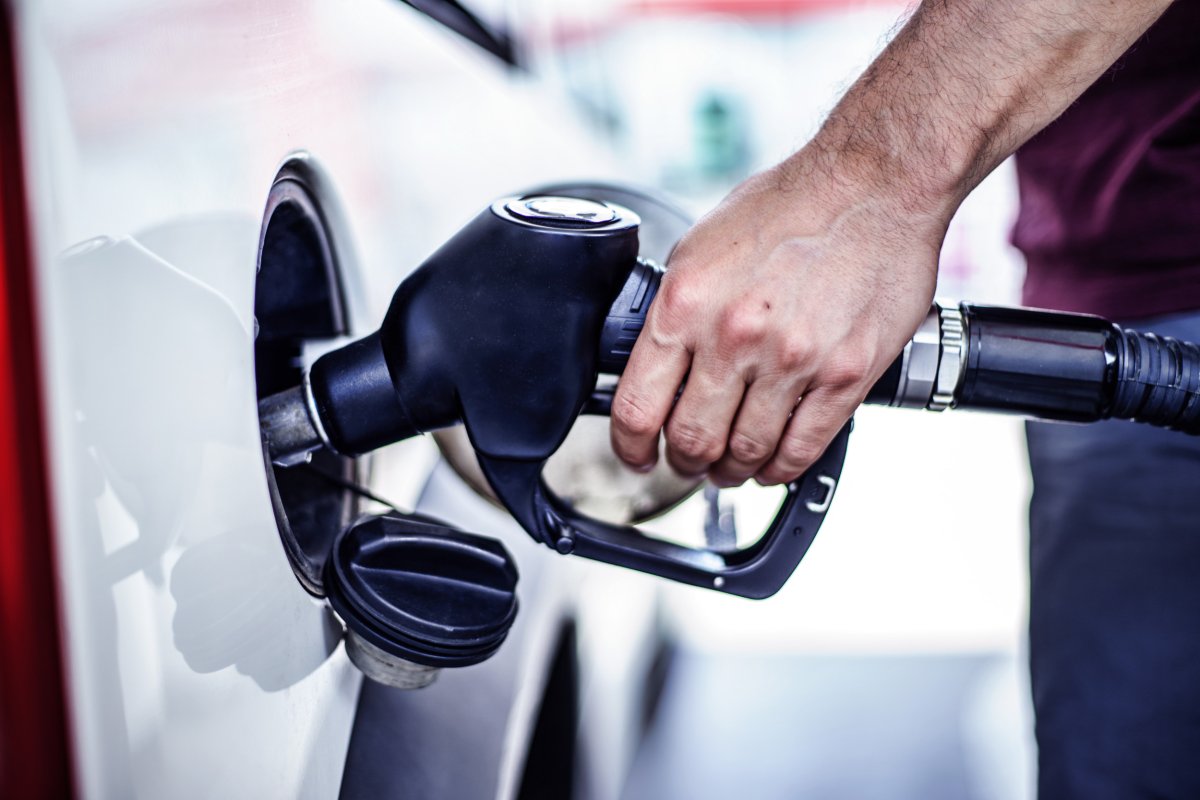The American Automobile Association (AAA) has warned motorists they could soon see a bump in gasoline prices.
The AAA said that a combination of seasonal demands, the cost of oil, and maintenance to refineries is likely to increase the price of gas at the pump. "It feels like being in a car with a cold battery, cranking away yet slow to turn over," said AAA spokesperson Andrew Goss in a press release. "But gas prices will likely start increasing around Valentine's Day."
An uptick in gas prices is a common annual trend around this time of year.
The AAA cited data from the U.S. Energy Administration (EIA) showing that there was a demand for 8.807 million barrels a day at the week ending February 2. This was an increase from 8.144 million barrels a day from the week before and from 7.880 million barrels a day the week before that.
Total gasoline stocks have also decreased from 254.1 million barrels to around 251 million barrels. This figure is higher than at the same point in 2023, an increase of over 11 million barrels, but the AAA said "drivers could see pump prices rise steadily" if demand increases.

The AAA also listed eight states where prince increases per gallon were most significant for consumers:
- Missouri—22 cents increase
- Wisconsin—16 cents increase
- Kentucky—15 cents increase
- Utah—13 cents increase
- Illinois—10 cents increase
- Ohio—6 cents increase
- Michigan—5 cents increase
- Arizona—5 cents increase
Average prices in Florida and New Mexico actually decreased by 10 and 7 cents respectively, the AAA said.
EIA data said prices in the U.S. in the week to February 5 had increased by $0.041 per gallon. This price is an average 0.308 cents cheaper than this time last year.
This gap between 2023 and 2024 is no larger in the most recent week than in the Rocky Mountains area, EIA data indicated. Average prices in the region are around 0.948 cents cheaper than this time last year, but there was a minor average increase of $0.014 in the week to February 5.
Each listed region—East Coast; Midwest; Gulf Coast; Rocky Mountain and West Coast—saw a minor average increase in price in the week leading to February 5, but none were more than 10 cents.
Seasonal gas prices
Gas prices generally start to increase from February each year for a number of reasons. One of those is that the summer driving season is several months away, meaning there is lower demand. When demand is lower, prices tend to be lower.
The seasonal conditions also requires companies to use winter blend fuels that are cheaper and evaporate more quickly, allowing cars to start in colder weather.
But environmental regulations mean that in the summer, these fuels are more prone to causing smog, so companies must produce "less evaporative but more expensive components," according to the EIA.
The National Association of Convenience Stores (NACS) indicates production can also be affected because of refinery maintenance. Due to low demand, "refinery maintenance, known as a "turnaround," is often scheduled during the first quarter," NACS said.
This can include a total or partial shut down of refineries for a period.
A combination of the above means that January is usually the year in which gas prices are at their lowest, so consumers can usually expect an increase until around June, before prices fall away from around September.
EIA data also indicates this. The average price from 2000 to 2022 in January was $2.47 a gallon, compared to $2.94 a gallon in June.
Higher prices
Higher gas prices could be bad for President Joe Biden in an election year, polling has suggested.
A report by Moody's Analytics released in January said Biden could lose the presidential race against his likely opponent Donald Trump.
The report was based on economic performance and "hinges on our forecast for the strength of the economy between now and Election Day."
But Moody's also factored in gas prices in its modeling. "Biden gets a small tailwind from the year-over-year decline in gasoline prices," Moody's said, adding an increase could see this benefit being eroded.
Newsweek has approached the Biden campaign for comment.
Fifty-five percent of people polled by Redfield & Wilton Strategies who said they had seen a price rise in their local area said it was "primarily caused" by government policies, rather than global factors.
People who responded to the poll indicated their political allegiances may have been a factor in their thinking, however. A total of 50 percent who felt gas prices in their local area had risen recently had voted for Trump in the 2020 presidential election, while 29 percent had voted for Biden.
added this section late for additional context so, please leave time for comment to come back. request sent at 9.47 a.m. ET
Uncommon Knowledge
Newsweek is committed to challenging conventional wisdom and finding connections in the search for common ground.
Newsweek is committed to challenging conventional wisdom and finding connections in the search for common ground.
About the writer
Benjamin Lynch is a Newsweek reporter based in London, U.K. His focus is U.S. politics and national affairs and he ... Read more





